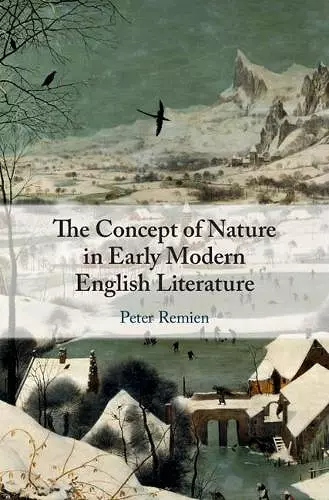The Concept of Nature in Early Modern English Literature
Format:Hardback
Publisher:Cambridge University Press
Published:14th Feb '19
Currently unavailable, our supplier has not provided us a restock date

Participates in an intellectual history of ecology while prompting a re-evaluation of nature in the early modern period.
This book focuses on Kenelm Digby's development of 'the oeconomy of nature' in the seventeenth century and how this concept influences the literature of Jonson, Marvell, Herbert, and Milton. It is for graduate students and researchers working in the field of early modern English literature and literature and the environment.The Concept of Nature in Early Modern English Literature traces a genealogy of ecology in seventeenth-century literature and natural philosophy through the development of the protoecological concept of 'the oeconomy of nature'. Founded in 1644 by Kenelm Digby, this concept was subsequently employed by a number of theologians, physicians, and natural philosophers to conceptualize nature as an interdependent system. Focusing on the middle decades of the seventeenth century, Peter Remien examines how Samuel Gott, Walter Charleton, Robert Boyle, Samuel Collins, and Thomas Burnet formed the oeconomy of nature. Remien also shows how literary authors Ben Jonson, George Herbert, Andrew Marvell, Margaret Cavendish, and John Milton use the discourse of oeconomy to explore the contours of humankind's relationship with the natural world. This book participates in an intellectual history of the science of ecology while prompting a re-evaluation of how we understand the relationship between literature and ecology in the early modern period.
ISBN: 9781108496810
Dimensions: 235mm x 160mm x 16mm
Weight: 470g
234 pages